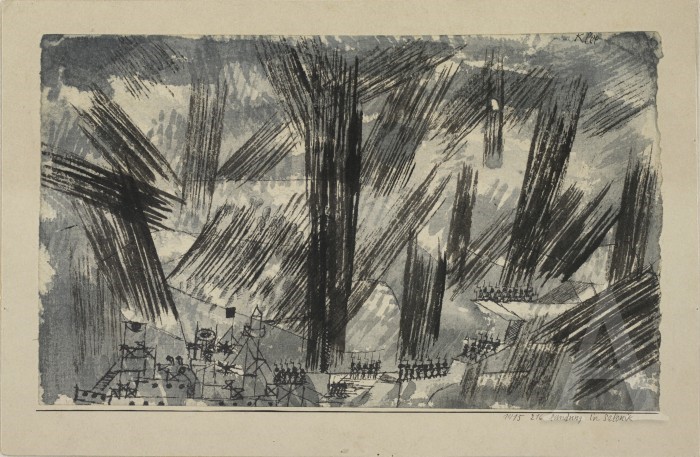Born in Munchenbuchsee, Switzerland in 1879. He studied art at the Munich Art Academy (1898-1901) and later became associated with the Blaue Reiter group. Klee lived in Germany during the First World War and in 1916 was called up by the German Army. He was not sent to the front-line and spent some of his time painting airplanes. His war experiences appeared in his book, Diaries: 1898-1918. Klee taught at the Bauhaus in Weimar and Dessau. He was an undogmatic teacher and a stimulating writer on art. The most important book Klee wrote during this period was, Pedagogical Stetchbook (1925). With the emergence of Adolf Hitler in Germany, Klee returned to Switzerland. Many his paintings on display in Germany were confiscated by the Nazis as degenerate. The growth of fascism in Europe affected Klee badly and he began to suffer from acute depression. In 1935 Klee developed scleroderma and died in 1940. Paul Klee visited Macedonia, more precisely the city of Thessaloniki in 1915. He made the well-known watercolor painting “Landing in Saloniki 1915” which is part of the collection of Albertina Museum, Vienna, Austria.
Brothers with arms
Imperial War Museum (IWM) London, 2018. The preparation for a large exhibition with a title “Lest We Forget” to commemorate
